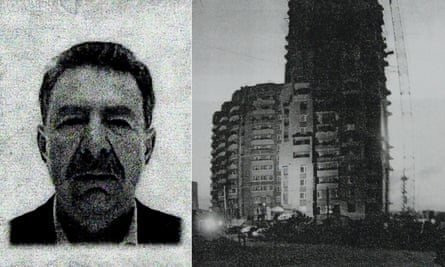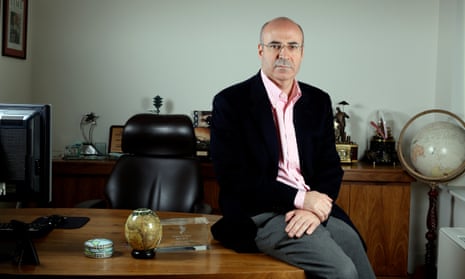The Russian president, Vladimir Putin, has accused prominent British businessman Bill Browder of being a “serial killer” – the latest extraordinary attempt by the Kremlin to frame one of its most high-profile public enemies.
Court documents seen by the Observer reveal that Russian state investigators have named Browder, a London-based hedge fund manager, as the suspect behind the mysterious murders of three men.
All three deaths are linked to a £174m fraud believed to have involved Russian officials – a crime that was uncovered by Browder’s Russian lawyer, Sergei Magnitsky, in 2008. Magnitsky was subsequently imprisoned on charges widely considered to be false, and died in jail amid claims he was tortured.
Browder, once the largest foreign portfolio investor in Russia, has infuriated Putin by lobbying western governments to punish those responsible for Magnitsky’s death. A number of countries have imposed sanctions on individuals believed to be involved.
Drawn up by the Russian state’s powerful investigative committee, the court papers reveal that the three dead men are linked to the massive tax-fraud scheme in Russia discovered by Magnitsky, but name Browder – described as a “citizen of the UK” – as responsible for their deaths.
The documents, which contain details of the investigation into the murders, which happened in the aftermath of the fraud, state: “The determination of the circumstances of death of victims is directly connected with the examination of facts of commitment [sic] by Browder.”

Browder said the latest in several recent attempts to undermine him indicated Putin was becoming “delusional” in his anger over the repercussions that have arisen from the case. “Putin is so rattled by the Magnitsky sanctions that he has completely lost touch with reality,” he said.
The court documents outline an update into the investigation of the three linked deaths, which investigators have “found grounds to believe were of violent nature and occurred as a result of deliberate acts”.
The papers, written by a lead state investigator in April 2016 but which have only now come to light, name the three men as Octai Gasanov, 63, Valery Kurochkin, 55, and clothing salesman Sergei Korobeinikov, 67, who were killed between 2007 and 2008. Browder has not visited Russia since 2005, when he was banned as a threat to national security.
All three men have been linked to the organised crime group said to have helped facilitate the tax fraud and to have helped transfer the proceeds to a network of global bank accounts.
Details of the murders are scant but the court papers reveal that Gasanov was found dead at his Moscow apartment in October 2007, with the cause of death a mystery because no postmortem was carried out.
Kurochkin was found dead near Boryspil airport, outside Ukraine’s capital, Kiev, in April 2008. His death certificate says he died from cirrhosis. Travel records have previously revealed that Kurochkin travelled to the Ukraine in March 2008 with other members of the syndicate believed to be involved with the theft of the “Magnitsky money”. The return journey was made by all the group members except Kurochkin.
Six months later, on 24 September, Korobeinikov died after falling from a tall building “under construction during unidentified circumstances”. The court papers refer to “coercive forces” as possibly being behind the “spontaneous fall”.
The Magnitsky case gained significant prominence this summer after it emerged that a lawyer supporting the Russian government’s position had met senior figures in Donald Trump’s US presidential campaign, including Trump’s son and son-in-law.
Magnitsky’s death had previously prompted Browder to work with the US Congress to pass the Magnitsky Act, which levied targeted sanctions against powerful players in Russia and was most recently adopted by Canada.








